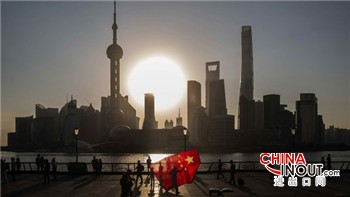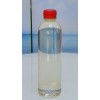中国的经济数据和股市都未能给仍对今夏股灾心有余悸的投资者带来些许安慰。但探访一下中国本土私募股权公司中信资本(Citic Capital)投资的企业,就会发现市场可能悲观过头了。
中信资本认为,中国的确正在转向理想中的更以服务为导向、消费驱动的经济,这种观念已成为如今该公司主要的投资主题。不过这种转变并没有过多地表现在经济数据上——经济数据仍专注于工业生产、工业生产者出厂价格通缩等指标。此外,由于中国股市成立之初的主要目的就是为了给(经常无法盈利的)国有企业筹集资金,股市本身无法反映整体经济状况。
例如,可以看一下2014年被中信资本收购的金可儿床垫(King Koil Mattress)中国公司的情况。一家床垫企业可以很好地反映出消费状况,虽然这一点并非一望即知。位于上海郊区的金可儿床垫展厅所展示的床垫售价最高达97万元人民币(合16万美元),其最畅销的款型售价为1.6万元人民币,而最低端的款型售价1.08万元人民币。
同时,过去3年,金可儿的收入每年增长40%,同期利润年均复合增长率达110%。其中一个原因在于原材料成本并未上涨。不过,据展厅的工作人员透露,劳动力成本平均上涨了10%至15%——这是好事,不是坏事。
如果经济转型要保持下去,中国需要创造低端制造业以外的就业机会,同时需要工资和收入上涨以支撑消费。而这种情况在中国内地正在发生(与很多工资基本停滞不前的发展中国家和发达国家形成对比)。去年,中国新增了1300万个工作岗位,今年上半年新增就业岗位超过700万,而在大多数省份,工资平均在以13%的速度上涨。
“就业是整体低迷中的一抹亮色,”摩根大通(JPMorgan)驻香港首席中国经济学家朱海斌表示,“制造业就业不足,收入增长放缓,但服务业意味着更多收入和消费。”
与此同时,金可儿中国以及整个中国内地的生产率都在持续提升。金可儿在中国的工厂生产的床垫比美国工厂生产的质量更好,价格还更低。
同时,对北京郊区一所东方剑桥双语幼儿园(OC Early Education)的实地探访讲述了类似的故事:市场日益扩大,学费不断上涨。东方剑桥双语幼儿园对三岁起的学生进行英汉双语教学,而学生们越来越富裕的家长也有足够的钱负担随后几年翻倍的学费。
此外,人口结构结合政策变化也创造了更多有利条件。中国将全面放开二孩,这将为学校创造更多需求,尤其是所谓“虎爸虎妈”想让孩子进的那些好学校(好学校可以为孩子未来的人生带来优势)。
这两家公司所处的领域都高度零散化,这意味着它们可以通过并购扩大规模,中信资本也很容易在某一时刻通过股权转让(trade sale)退出。
这些丝毫没有体现在所谓的李克强指数(Li Keqiang index)中,该指数衡量银行信贷、用电量及铁路货运量增幅。大多数服务企业缺少银行要求作为贷款抵押的硬资产,而且它们的能源密集度也不高。(考虑到物流以及所谓最后一英里送货上门的挑战,金可儿用卡车将床垫从工厂运送给客户。)
事实上,中信资本投资的企业主要由服务企业构成,这些企业10年前基本上都不存在,它们涉及的领域包括教育、媒体、金融、物流——还有阿里巴巴(Alibaba),中信资本希望从其身上获得5倍的投资回报。虽然中信资本投资的许多企业无法获得银行融资,但具有讽刺意味的是,中信资本却可以毫不费力地获得银行贷款。
当然,有朝一日,私募股权公司将能够让服务企业上市,届时股市对经济运行情况的反映将不那么扭曲,并将为投资者提供更多有利可图的机会。如果这是监管机构从今夏的股灾中汲取的教训,那双方的境况都将变好。(中国进出口网)

Both economic data and the stock market in China offer little cheer to investors still spooked by the events of the summer. But a visit to the portfolio companies of Citic Capital, a local private equity firm, suggests the gloom is overdone.
Citic Capital believes China is indeed making the desired shift to a more service-oriented, consumption-driven economy, a view that has become its principal investment theme today. That shift, though, does not appear in much of the data, which still focus on such measures as industrial production and deflation in producer prices. Moreover, since the whole point of the stock market from the beginning was to raise capital for (often profit-free) state-owned enterprises, the market itself is hardly a reflection of the state of the overall economy.
Consider, for example, the circumstances of the Chinese unit of King Koil Mattress, which Citic Capital bought in 2014. While it is not immediately obvious, a mattress company is a good indicator of consumption. A King Koil showroom on the outskirts of Shanghai displays mattresses that sell for up to Rmb970,000 ($160,000), with its best-selling models priced at Rmb16,000 and its lowest end mattress Rmb10,800.
Meanwhile, King Koil’s revenues have grown 40 per cent per year for the past three years, with profits up 110 per cent for the period on a compound annual basis. One reason for this is the fact that raw material costs are not rising. Labour costs, though, are up between 10 and 15 per cent on average, according to staff in the showroom — but that is a good thing, not a bad thing.
If the shift is to take hold, China needs to create jobs beyond low end manufacturing, and wages and incomes need to rise to support consumption. And that is happening on the mainland (in contrast to much of both the developing and developed world wher wages remain essentially flat). China created 13m jobs last year and more than 7m in the first half of this year, while in most provinces wages have been rising 13 per cent on average.
“Jobs are the silver lining,” says Haibin Zhu, chief China economist for JPMorgan in Hong Kong. “There is underemployment in manufacturing and slower income growth, but services mean more income and more consumption.”
At the same time, productivity continues to improve both at King Koil and generally across the mainland. The factories in China produce better quality mattresses than those in the US — still at a lower price.
Meanwhile, a visit to one of OC Early Education’s kindergartens on the outskirts of Beijing tells a similar story, of rising tuition charges in a growing market. OC Education teaches English as well as Chinese from the time its students are three, while their increasingly affluent parents have enough money to afford a doubling of tuition fees in later years.
Moreover, a combination of demographic and regulatory changes provides further tailwinds. China is about to let virtually all urban residents have more than one child, which will create far more demand for schools, especially those that will give the children of so-called “tiger” parents an advantage later in life.
Both companies are in fields that are highly fragmented, suggesting they can grow by acquisition, and that Citic can easily find an exit through a trade sale at some point.
The so-called Li Keqiang index, which measures the increase in bank credit, electricity usage and railway freight transport, does not capture any of this. Most service companies lack the hard assets banks require as collateral for loans, and they are not energy intensive. (Given the logistics for King Koil, and the challenge of so-called last mile delivery, trucks transport mattresses to customers from the factory.)
Indeed, Citic Capital’s portfolio is dominated by service companies that barely existed 10 years ago, in sectors including education, media, finance and logistics — and Alibaba (on which Citic expects to make five times its money). And while many of its portfolio companies cannot get bank financing, ironically Citic Capital itself has no problem doing so.
At some point, of course, private equity firms will be able to float these service companies, and the stock market will provide a less distorted view of what is happening in the economy and offer investors more interesting opportunities. If that is the lesson regulators draw from the debacle of the summer sell-off, both sides will be better off.











